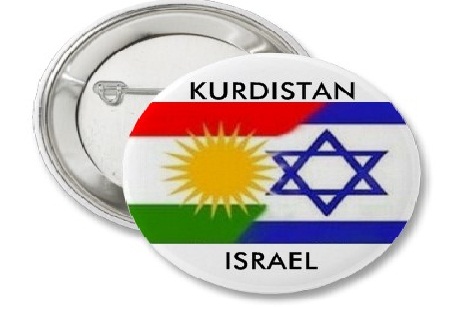
RNA - Iraq, Iran and Turkey forbade the vote. The international civil society said no. Still, that didn’t stop the Kurdish regional government’s President Masoud Barzani, who called the secession vote, to rekindle the fires of separatism, and go ahead with it.
Polls closed in Iraqi Kurdistan on Monday, and while there are a lot of questions about what’s going to happen next, one thing that’s not in serious doubt is the results. Early counts show what everyone suspected though, that it’s not going to be close. The KRG says more than 90% have cast a yes vote.
Iraqi Kurdistan has long sought secession, as has its main allies, Israel and the United States that want to gut the region on ethnic fault-lines. The vote referendum was just an up and down vote on secession in general, but questions about the specific boundaries, especially after Kurdistan occupied substantial new territory in the ISIL war, remain to be resolved.
The problem is, the world community doesn’t recognize the result, including Iran and Turkey. Iran’s Parliament Speaker Ali Larijani, for instance, says Tehran will never recognize the vote, urging Kurdish officials to resolve their disputes with Baghdad through dialogue.
In his words, “We made it clear to the Kurdish officials in Tehran that the vote would create new tensions in the region at a time when Daesh (ISIL) is still not fully defeated. We told them to resolve their disputes with the central government in Baghdad through dialogue. But it seems some outside powers are also behind this subversive move. Some Kurdish officials have even thanked Israel for its support. This only means trouble for the Kurds. As always, we stand by the central government in Baghdad. We will never support the partition of Iraq or any other country in the region.”
This comes as many world politicians and government officials also warn that the Kurds are still isolated regionally and internationally, pointing out that the UK, France and Germany are also opposed to the vote, as are all members of the United Nations and the Security Council. They draw a parallel with the historic betrayal of the Iraqi Kurds by the US and Israel to Saddam Hussein in the 1980s, when they similarly found themselves without allies.
It is obvious that the US and Israel are behind this new gambit. So Iraq’s territorial integrity should remain intact. They created ISIL to partition the region to their liking, but failed. Now they want to fuel ethnic tensions in Kurdish regions to achieve the same goal. The international civil society, including Iran, Turkey and Iraq, should never allow this to happen because tensions only serve American-Israeli interests.
True, despite the political uproar it has provoked, the vote does not oblige Barzani to secede from Iraq and establish an independent Kurdish state, though it will show that such a move has popular support. A more certain result will be that it will bolster Barzani and his political party the KDP in presidential and parliamentary elections on November 1. But that does in no way mean the world should ignore the negative consequences of this historic blunder which could include new tensions and even new ethnic-sectarian warfare on a regional scale. The non-binding vote could lead to developments and happenings that would affect all people of the region, especially Kurdish people.
So what’s next? Following the vote, there are limited options for using the results to continue the push for so-called independence. A unilateral declaration of independence is unlikely and would be dangerous. More likely, as in most unilateral secessionist referendums and as in Kurdistan’s 2005 poll, the results will be a strategic marker, useful for Barzani’s KDP party within Kurdistan and useful for pushing Kurdish politics vis-à-vis Baghdad.
The best outcome for the vote on independence is new negotiations on the unified state. Since 2005, Baghdad and the KRG have been in raw over the rights to exploit oil in Kurdish territories, the status of integrated security forces units, and a process through which the status of the disputed territories might be decided. Any new talks and political arrangements need to be supple in order to take care of these outstanding issues. The process of addressing these problems successfully through dialogue can keep Iraq as a unified state. Yet we still need to wait and see if the KRG means to use the voting results as a leverage in such talks, as former foreign minister Hushyar Zebari has stated, or is meant to implement the US-Israeli secession plot under any circumstances.
847/940